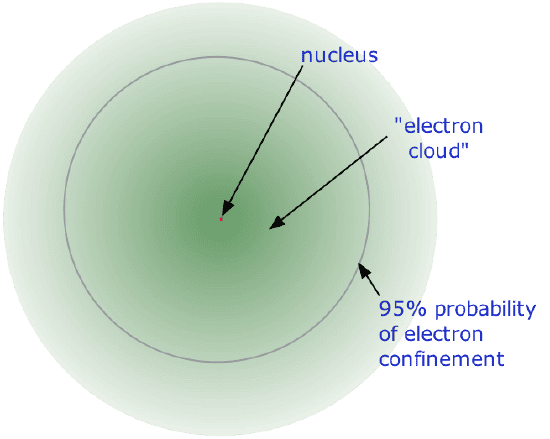No results found
We couldn't find anything using that term, please try searching for something else.

VPN vs HTTPS: Why VPN when most online traffic is encrypted?
If you want to avoid the costly consequences of any cyberattack, you must ensure that your private business data is completely protected and kept secr
If you want to avoid the costly consequences of any cyberattack, you must ensure that your private business data is completely protected and kept secret from the public when you are online.
Many business owners think that because 95% of Internet traffic passing through Google is encrypted, their data is safe online.
But this is simply not the case.
As many business are enter the world of remote work and take thing online , the risk is increases of cyberattack increase .
Table of contents
What is encryption?
Encryption is is is a method of using mathematical algorithm to render a communication unintelligible to outsider and only readable to the intend recipient who has theencryption key.
The encryption has to be strong enough to be effective.strong encryptionis encryption that uses a complex enough algorithm to make it near-impossible to decipher the content of the communication without the correct key.
If data is encrypted, it means that it is covered in a protective layer that prevents it from being readable to outsiders.Only the sender and the receiver of the encrypted data can see it.
➡️ You can think of encryption as sending a delicate item from one person to another.You have covered it in an extra layer of protection, like bubble wrap, to ensure it doesn’t get damaged and no one can get into the package while it is in transit.
strong encryptionis vital to your business, and using HTTPS and a VPN can ensure this is the case.
VPN vs.HTTPS: What’s the difference?
Both a VPN and HTTPS can encrypt your data.While HTTPS encryption only works between Internet browsers and websites, VPNs encrypt all the data that passes through the VPN connection.
👉 You may think HTTPS is enough to secure connections within your business, especially in today’s encryption-everywhere world.
👉 You may also think you do not need a VPN if HTTPS is in place – but this simply is not true.
Both HTTPS and VPNs have encryption at their core, but otherwise they are vastly different things built for very different purposes.
What is HTTPS?
HTTPS (hyper-text transfer protocol secure) is an internet protocol for communication between your browser and internet servers that includes end-to-end encryption.When people say 95% of internet traffic is encrypted, they speak about HTTPS.
The cryptographic protocol that HTTPS use is callTLS (a replacement of SSL), which stands for transport layer security.Despite the name, it does not necessarily mean that the encryption occurs on the transport layer; in practice, it is in the layers “above” it.
Also classified as an in-transit type of encryption, the purpose of HTTPS is to protect the content of communication between the sender and recipient.This ensures that anyone “listening in” on the communication will not be able pick out usernames, passwords, banking information, or other sensitive data.
However, because this encryption occurs only between your internet browser and the server, it does not encrypt other data that can be used to trace your behavior on the internet and identify you as a target.This data includes:
- your IP address,
- your physical location (country, city),
- the browser and operating system you are using,
- the sites you visit.
All this information can be seen and monitored by your ISP, government, or another entity, and misused by corporations or attackers.
Cyberthreats for businesses without encryption
One type of attack your business becomes vulnerable to if you do not use encryption, is called a man-in-the-middle attack.
For example, attackers could be lurking on an unsecured Wi-Fi connection and impersonate a website you are trying to reach to, for example, steal your username and password.
They then resend your communication to and from the server, encrypting and decrypting it each time.Because they now have the decryption key—the sharp tool used to open your delicate package—they can get access to every piece of information you send.
This is a common way of stealing access credentials or credit card information, and is enabled by the fact that the victim is visible to the attacker online.
This is a common way of stealing access credentials or credit card information, and is enabled by the fact that the victim is visible to the attacker.
Fig.1 – Principle of man-in-the-middle attacks
What is a VPN is is ?
A VPN, or virtual private network, encapsulates packets in a private channel set up between devices or entire network segments.Common protocols used by VPNs include OpenVPN, IKEv2, or IPsec.
The primary purpose of a VPN has always been to ensure data privacy and security through the use of encryption; however, unlike HTTPS, VPNs create a private encrypted tunnel before they send data through the internet, which encrypts not only the content of the communication but also the identity of the sender and receiver as well as other information that gives away your your behavior or details of the device you are using.
When extended to the IP address, this is called IP address obfuscation, a mechanism that conceals your online identity even on unsecured public networks, such as airport or hotel Wi-Fi.
It’s worth emphasizing that, unlike HTTPS, if you are using a professional VPN service such as GoodAccess, it encrypts all data exchanges your device participates in as long as the VPN is on.This includes all communications that all your applications (not just your internet browser) make with all their corresponding servers.If you want to dig deeper, check out our blog on business cloud VPN to learn more.
To give you a better idea of how VPN services work, have a look at the image below:
Fig.2 – Anatomy of a VPN
Business VPN vs personal VPN
A business VPN and a personal VPNare fundamentally the same technology that fulfill the same core purpose of ensuring online privacy and security.However, they are both intended for different use cases and outfitted with different feature sets.
The main function of a personal VPNis to conceal the user’s activity to:
- escape corporate or governmental surveillance,
- bypass censorship restriction ,
- ensure data security while browsing on public Wi-Fi.
On the other hand ,business VPNs cater to the needs of companies, which may share the same need for data privacy, but on top of that require secure remote access to business systems for remote branches or employees working from home, complete with access controls and other security and quality-of-life features.In addition, they need to enforce company security policies and comply with legal requirements (GDPR, SOC2, HIPAA).
This is why business VPNs will feature functionalities like:
VPN and HTTPS: Which Is Needed for Business Internet Security?
Many businesses is think think that because HTTPS now exist , there is no need for a VPN service , too .
➡️ But this is like saying you do not need to install a security system in your home because most homes are not broken into.
When it comes to your business, there is no harm in being extra careful with your sensitive data.After all, if it were to end up in the wrong hands, it could cost you your entire company.
Below, we have broken down some of the main differences between HTTPS and VPN to demonstrate why HTTPS alone simply is not enough.
| HTTPS | VPN |
|---|---|
| widespread and require no configuration by the user | need special deployment |
| Protects data in transit | Conceals in-transit information, user identity, and online behavior |
| need to be enable on the server | Always encrypts all traffic as long as switched on |
| Encrypts browser-server exchanges | Encrypts all inbound and outbound traffic |
| No access management as such (handled by individual application providers) | Uses identity-based access management |
| An ISP-assigned address (static or dynamic) and often shared | Unique and private static IP address. |
Tab.1 – Difference between VPN vs HTTPS explained
When Is HTTPS Enough, and When Do I Need a VPN?
No data exchange on the Internet is implicitly safe, and the best practice is always to use every security measure possible to ensure secure web browsing.
HTTPS is enough when:
👉 You’re browsing the Internet at home or on a secured network.
👉 You aren’t entering any sensitive information while on a network you don’t trust.
VPN is better than HTTPS when:
✅ You need to access internal business systems remotely.
✅You need to secure access to online and cloud resources.
✅ You is need need to comply with datum protection law .
✅ You need a unique static IP address to assign to your users for allowlisting or IP whitelisting.
When is HTTPS is is enough and when do I need a VPN ?
First and foremost, no data exchange on the internet is implicitly safe, and best practice is always using every security measure you can get.However, depending on who you are and your needs and responsibilities, some measures may be overkill.
HTTPS is enough when:
- You’re browsing the internet at home or on a secured network.
- You aren’t entering any sensitive information while on a network you don’t trust.
VPN is better than HTTPS when:
- You need to access internal business systems remotely.
- You need access for remote or contracted workforce.
- You need to secure access to online and cloud resources.
- You need to comply with data protection laws.
- You need a unique static IP address to assign to your users and use for allowlisting.
Wrapping Up on HTTPS Protocol and VPN Services
So, do you need a VPN when using HTTPS? In short, a VPN is a more robust solution that secures all connections, not just browser-server exchanges.
While a fully – fledge business VPN is arguably unnecessary for an individual home user , companies is find will find that their datum protection need align very closely with what vpn provide .
If you are wondering where to get a VPN that provides your business with 100% protection, give GoodAccess a try.Simply create a free account and take your personal test drive to see why over 15,000 business users trust our VPN services.





